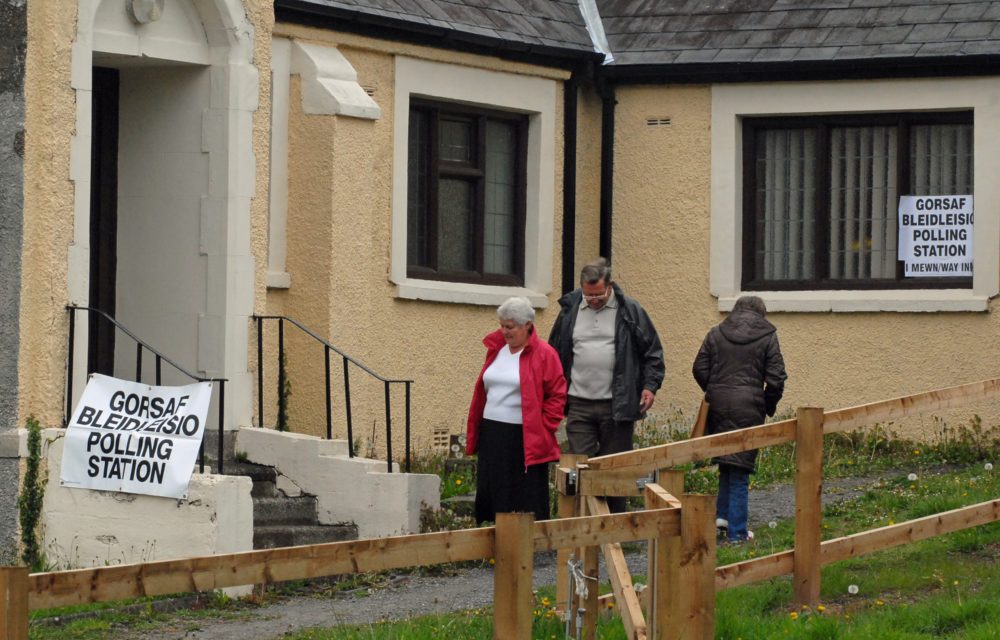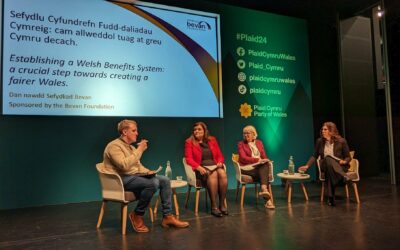 Bevan Foundation
Bevan Foundation 
Today marks the start of four days of voting across the European Union, where around 400 million people will be able to choose 751 Members of the European Parliament, including 73 from the United Kingdom with four representing Wales.
The size of the electorate makes this election the second largest in the world, topped only by India, which last week unceremoniously dumped the Congress Party from power in a dramatic election which saw a near 14% swing to the Hindu nationalists. The Election Commission of India recorded a national voter turn-out rate of just under two-thirds with the Northeastern state of Tripura reporting a high-water mark of 84%. Despite heightened interest in European affairs this year, today’s election have failed to produce anything like the level of excitement experienced by Indian voters.
Levels of voters’ trust and confidence in politicians and political institutions are still at an all-time low in the UK.
Unlike the economy, our politics is still firmly in recession, with no signs of the green shoots of recovery coming anytime soon. But it’s at a European level where UK voters appear to feel particularly disconnected from their representatives. In truth, Wales, like much of the UK has historically had a ‘dim diolch’ attitude to European elections. Turn-out generally hovers around 30%, except when combined with another election. 2004 saw a 41.4% participation rate in Wales in a ballot which coincided with local elections.
So, what’s going wrong with Europe?
Well, in short, it’s democracy stupid – or perhaps, lack of. Eurobarometer research shows that nearly three-quarters believe their voice doesn’t count in the European Union, and over two-thirds don’t trust it. Even more worryingly, Electoral Reform Society research has demonstrated that over a third (35%) of people think it not worth voting in today’s election.
As long as we’re members of the EU we should be doing everything we can to make sure people have real influence over European affairs. The EU has to be more representative and more accountable, and it should be designed to encourage participation rather than putting people off. The Electoral Reform Society has developed 12 practical recommendations we think can help tackle voter disengagement at the European level.
Institutionally, Europe can work better.
In the UK, devolved administrations and Westminster should play a greater role in scrutinising Whitehall’s European work. That means allowing MPs to scrutinise the UK Government’s negotiating position before Council meetings as well as after. AMs should have the right to hold UK ministers to account on EU negotiations, and Welsh Ministers should have the right to formally participate in meetings of the Council of Ministers. As it stands, UK ministers can effectively decide what Wales thinks on matters which are devolved, without consulting their Welsh counterparts. There needs to be a formalised agreement that Welsh Ministers will have more of a say during EU negotiations. In other countries like Germany and Belgium devolved governments have a legal right to play a role in EU talks, and it’s time Wales was given the same guarantees.
The European Parliament can function better, and sittings in Strasbourg should be brought to an end. The European Commission should shrink in size and be more accountable to the European Parliament. We should re-connect voters with their representatives and replace the Closed List election system with the Single Transferable Vote (as is used in Northern Ireland). This would enable the electorate to vote for individual candidates rather than parties, and strengthen the political mandates of MEPs whilst preserving a fair result.
When the polls close at 10pm tonight, the speculation will only intensify until Sunday night when the results are declared, and the celebrations and post-mortems start. Opinion polls in Wales have painted a mixed picture which is difficult to decipher. Will Labour top the poll, or will this be only the second all-Wales election since 1885 when the Right wins (the other being the European elections of 2009)? Will Plaid hold on and will Labour secure its cherished second seat? Where will the Tories finish, and of course, what of UKIP and the Liberal Democrats?
But when the dust settles on the election results, those who have been elected must take responsibility for addressing the democratic deficit.
Today, less than a third are likely to vote and not many of them will feel particularly enthused about doing so. But we can change that. It’s time we tackled the European democratic deficit, and closed the gap between the EU and the people of Wales.
Click here to read the Electoral Reform Society’s report Close The Gap.
Steve Brooks is director of the Electoral Reform Society Cymru and tweets from @ERS_Cymru


